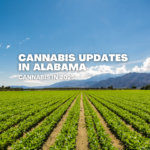Although laws can change, there are now some states where Delta 8 THC is legal.
State-By-State THC Legal Status
Although Delta-8 is allowed in the United States, it is prohibited in a few states. It won’t make a difference if the component is derived from natural hemp.
In Alaska, Arkansas, Colorado, Delaware, Idaho, Iowa, Montana, New York, Nevada, North Dakota, Rhode Island, Vermont, Utah, and Washington, Delta-8 THC is still illegal.
In the extraction or production of any cannabinoid hemp products, do not employ synthetic cannabinoids, or 8-tetrahydrocannabinol or 10-tetrahydrocannabinol generated through isomerization.
Other states, including California, Arizona, Nebraska, Michigan, Kentucky, Mississippi, are unclear and/or have regulated Delta 8 THC.
Some interpretations of Texas House Bill 3948 previously suggested that Delta-8 and other THC isomers synthesized from other natural cannabis chemicals might be made illegal soon.
Delta 8 THC State-By-State Legality
Delta-8 THC Legal Status (2025)
While laws regarding Delta-8 THC are subject to change, as of 2025, Delta-8 THC is legal in several states in the U.S., though it remains prohibited in others.
State-by-State Legal Status
Although Delta-8 is available in many parts of the United States, it is illegal in several states, regardless of whether it is derived from natural hemp or synthetic sources.
As of 2025, Delta-8 THC remains illegal in the following states:
- Alaska
- Arkansas
- Colorado
- Delaware
- Idaho
- Iowa
- Montana
- New York
- Nevada
- North Dakota
- Rhode Island
- Vermont
- Utah
- Washington
The legality of Delta-8 can be affected by its method of production, particularly if synthetic cannabinoids or isomerized compounds like 8-THC or 10-THC are used.
States with Unclear or Regulated Status
Certain states, such as California, Arizona, Nebraska, Michigan, Kentucky, and Mississippi, have unclear or ambiguous regulations regarding Delta-8 THC. It’s important to keep track of specific state laws or consult local authorities for clarity.
In Texas, Delta-8 THC was once allowed under the 2018 Farm Bill but is now facing scrutiny due to legal challenges and potential revisions to the Texas House Bill 3948, which could soon prohibit Delta-8 and other THC isomers derived from cannabis.
Where is Delta-8 THC Legal?
As of 2025, Delta-8 THC is legal in 28 states and Washington D.C. These states have laws that either explicitly permit the use of Delta-8 THC or have no laws restricting it. These states include:
- Alabama
- Florida
- Georgia
- Hawaii
- Illinois
- Indiana
- Kansas
- Maine
- Maryland
- Massachusetts
- Minnesota
- Missouri
- New Hampshire
- New Jersey
- New Mexico
- North Carolina
- Ohio
- Oklahoma
- Oregon
- Pennsylvania
- South Carolina
- South Dakota
- Tennessee
- Texas
- Virginia
- West Virginia
- Wisconsin
- Wyoming
- Washington D.C.
It’s important to note that in some states, Delta-8 THC products are only permitted if they are derived from hemp plants with less than 0.3% THC by weight. This distinction means that Delta-8 products must be produced and sold by the same standards that apply to CBD.
Psychoactive and Intoxicating Effects
Delta-8 THC has psychoactive and intoxicating effects similar to Delta-9 THC, the primary compound that causes the “high” associated with cannabis. As with Delta-9 THC, users can experience a range of effects, including euphoria, increased appetite, and altered perception of time and space.
The FDA has raised concerns over the safety of Delta-8 THC products. The agency has expressed worry that these products might expose consumers to higher doses of THC than what is naturally present in hemp cannabis preparations, possibly leading to unintended side effects. There are also concerns that Delta-8 THC is being marketed with insufficient regulation, potentially leading to inconsistent or unsafe products.
How Does Delta-8 THC Work?
Delta-8 THC is a CB1 receptor agonist, meaning it binds to the CB1 receptors in the brain and central nervous system. This interaction can result in a range of cognitive and physiological effects. While Delta-8 THC is thought to be less potent than Delta-9 THC, it still can produce psychoactive effects, which is why it should be used with caution.
Many users believe that Delta-8 THC is less intoxicating and more tolerable than Delta-9 THC, though this varies from person to person. Some users report that it provides a more clear-headed high, but others may experience strong effects.
Side Effects of Delta-8 THC
While Delta-8 THC is generally considered less potent than Delta-9 THC, taking too much can still lead to adverse effects. Some of the potential side effects of Delta-8 THC include:
- Rapid heart rate: Individuals with heart conditions or high blood pressure should be cautious, as Delta-8 THC may cause an increased heart rate.
- Nausea and dizziness: Like other cannabis products, Delta-8 can cause nausea, dizziness, and disorientation, especially in higher doses.
- Panic or anxiety: In some cases, Delta-8 THC can cause panic episodes or heightened anxiety, particularly in sensitive individuals.
- Impaired motor coordination: As with any intoxicating substance, it is not advisable to operate heavy machinery or drive after consuming Delta-8 THC.
If you are concerned about the effects of Delta-8 THC or if you experience any adverse symptoms, it’s a good idea to consult a doctor, especially if you have any pre-existing conditions or are taking medications.
Conclusion
As of 2025, the legal landscape of Delta-8 THC is complex and varies widely from state to state. While Delta-8 is legal in many parts of the United States, it remains illegal or unregulated in several others. If you’re considering using Delta-8 THC, it’s crucial to be aware of your state’s laws and ensure you’re purchasing from reputable, licensed sources that provide safe, lab-tested products.




